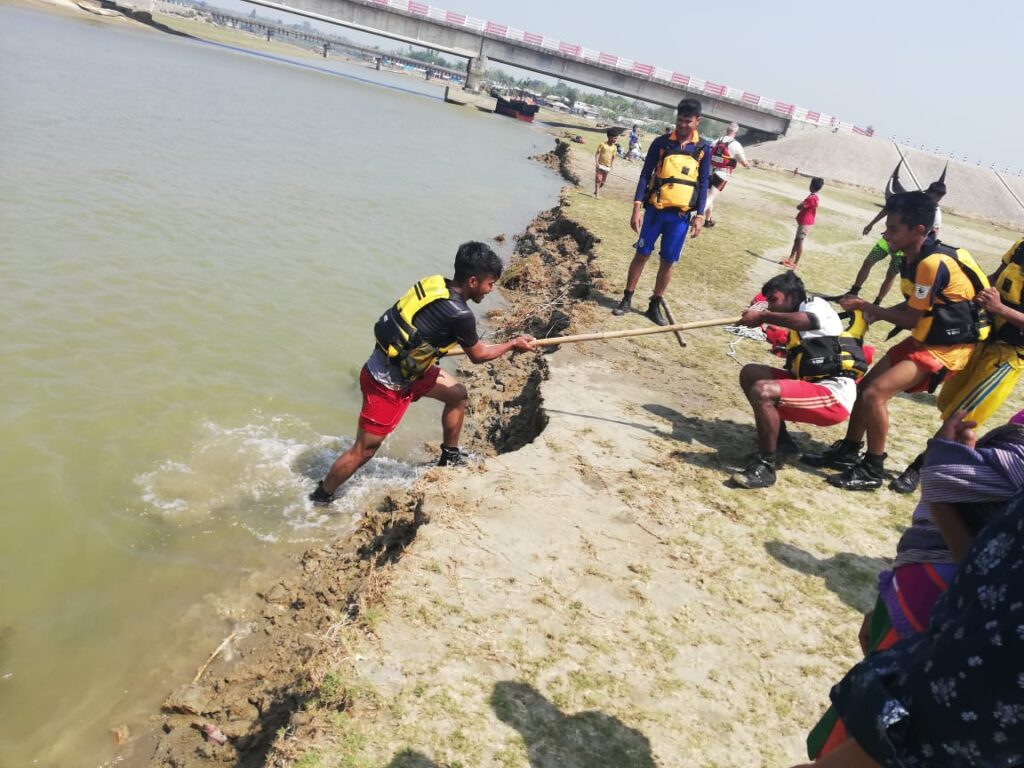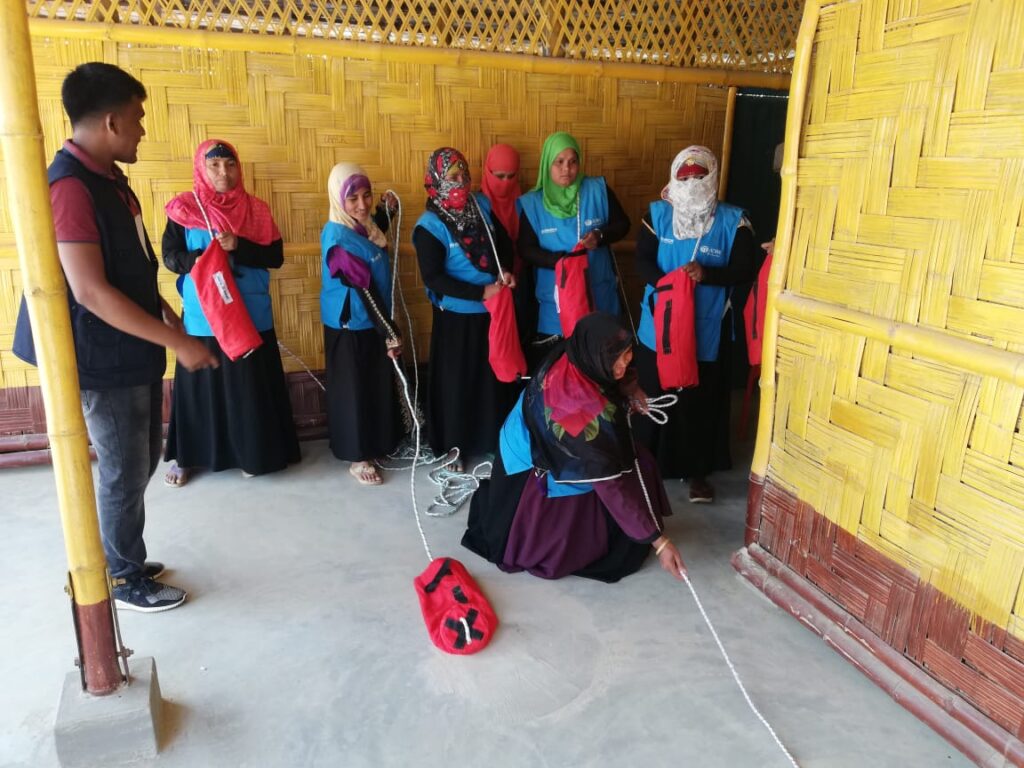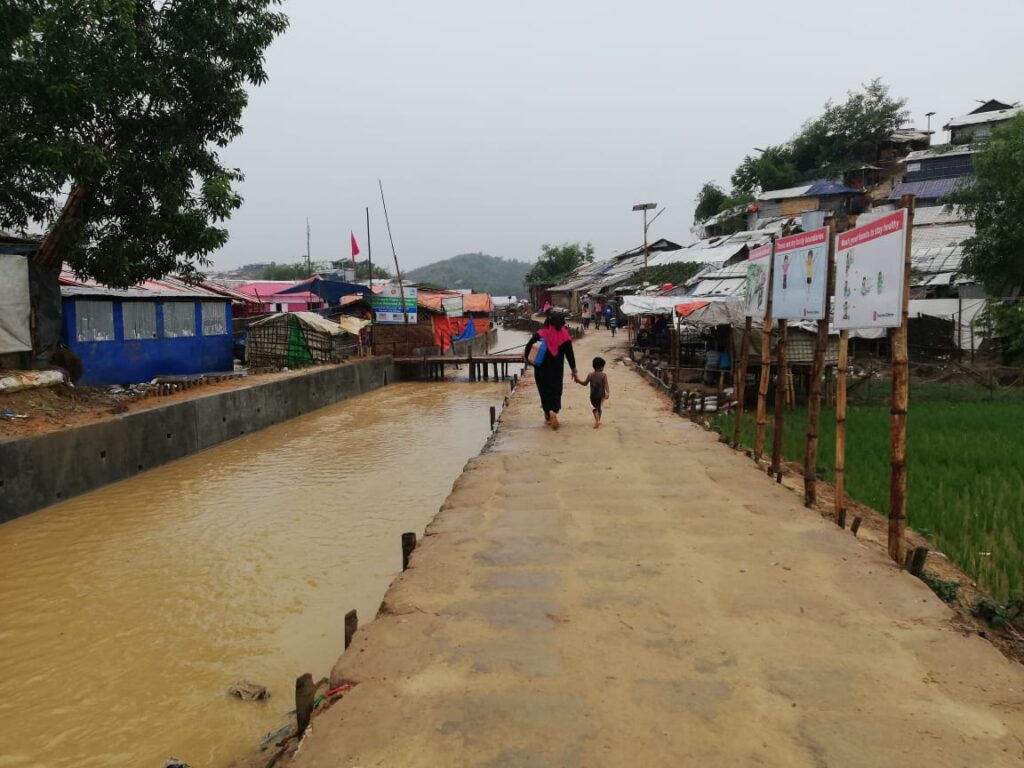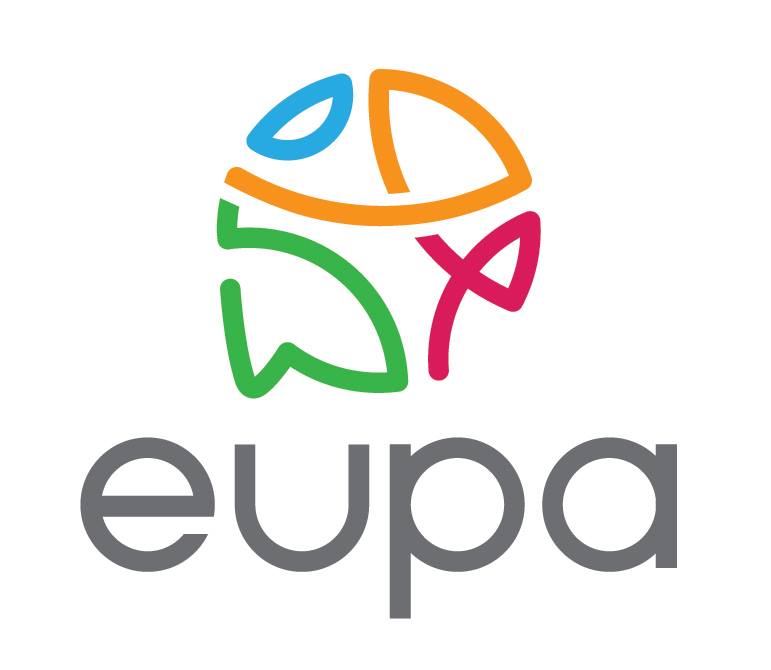As cyclone season approaches Bangladesh, MOAS is on the ground in Cox’s Bazar, preparing refugee communities for what lies ahead.
The first Extremely Severe Cyclonic Storm of 2019, Cyclone Fani, developed in the Bay of Bengal and made landfall in the Indian state of Odisha, with wind speeds of over 200km per hour. Cyclone Fani left a trail of destruction along the coast of India, before moving northeast into Bangladesh.
This cyclone prompted one of the biggest evacuations in history, with over a million people moved safely into storm shelters. Tragically, at least 34 people were killed in India and 15 in Bangladesh. However, effective planning and preparation is recognised to have limited the number of casualties, which could have been much higher.
For the MOAS team working in Cox’s Bazar, it has been a huge relief that Rohingya refugee camps were spared the full onslaught of Cyclone Fani. Although the region was fortunate this time, the arrival of the cyclone and monsoon season means that more storms will be on the way. For Rohingya families living in low-lying, overcrowded refugee camps, effective storm preparation can mean the difference between life and death.
MOAS believes the key to preparedness lies in building emergency response capacity within the refugee camps, raising awareness of storm-related risks and preparing residents to manage the effects of extreme weather. Therefore, MOAS has been working with Rohingya refugees, training them to become Community Safety Volunteers who can respond effectively in the event of flooding.
Earlier this month, we concluded our Flood and Water Safety Training project supported by UNHCR, and launched a second round of training in collaboration with IOM. The first project trained over 200 Rohingya Community Safety Volunteers, as well as providing them with high-quality water rescue equipment. Our new project is even greater in scope, aiming to train 800 volunteers and 70 IOM field staff. These projects are providing volunteers with the skills and knowledge to act as first responders in the event of an emergency, whilst also raising awareness of water safety within the camps.
Crucially, engaging staff from other NGOs in our flood-safety training builds their capacity to continue delivering vital programmes in flooded environments, as well as increasing their general knowledge of water safety. Our aim is to ensure that the work these NGOs are doing to assist Rohingya communities can continue uninterrupted, even in logistically challenging situations.
Alongside these projects, MOAS will also be running a Mobile Medical Team (MMT) throughout the cyclone season. Made up of highly experience medical professionals, this team will support existing clinics in emergency situations, and will also train clinical staff to work effectively in hazardous or challenging environments.
However, these projects can only go ahead with your help. At MOAS, we rely on your donations to keep our operating running, and to keep supporting those in desperate need. The Rohingya communities in Cox’s Bazar have already faced unimaginable hardships, and now, when they have reached a place of supposed safety, they are being threatened again.
Time is running out to ensure that Rohingya refugee camps are as prepared as possible for the upcoming rainy season. We need to act now.
MOAS is currently fundraising to continue delivering Flood and Water Safety Training, and to deploy a Mobile Medical Team throughout the cyclone and monsoon season in Bangladesh.
Please consider helping us to support some of the world’s most vulnerable communities. To contribute to our appeal, donate now.
If you are interested in the work of MOAS, please follow us on social media, sign up to our newsletter and share our content. You can also reach out to us any time via [email protected].




